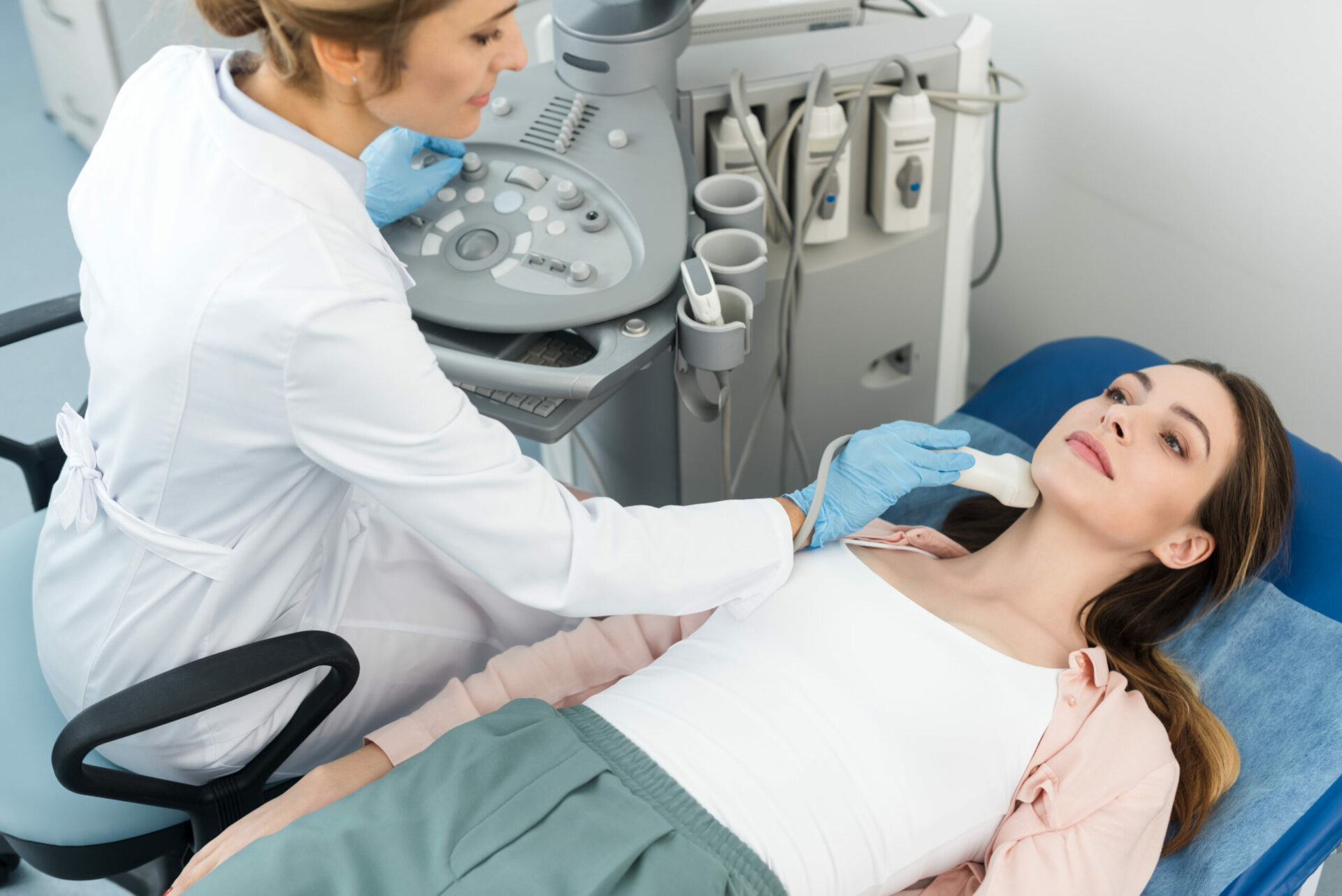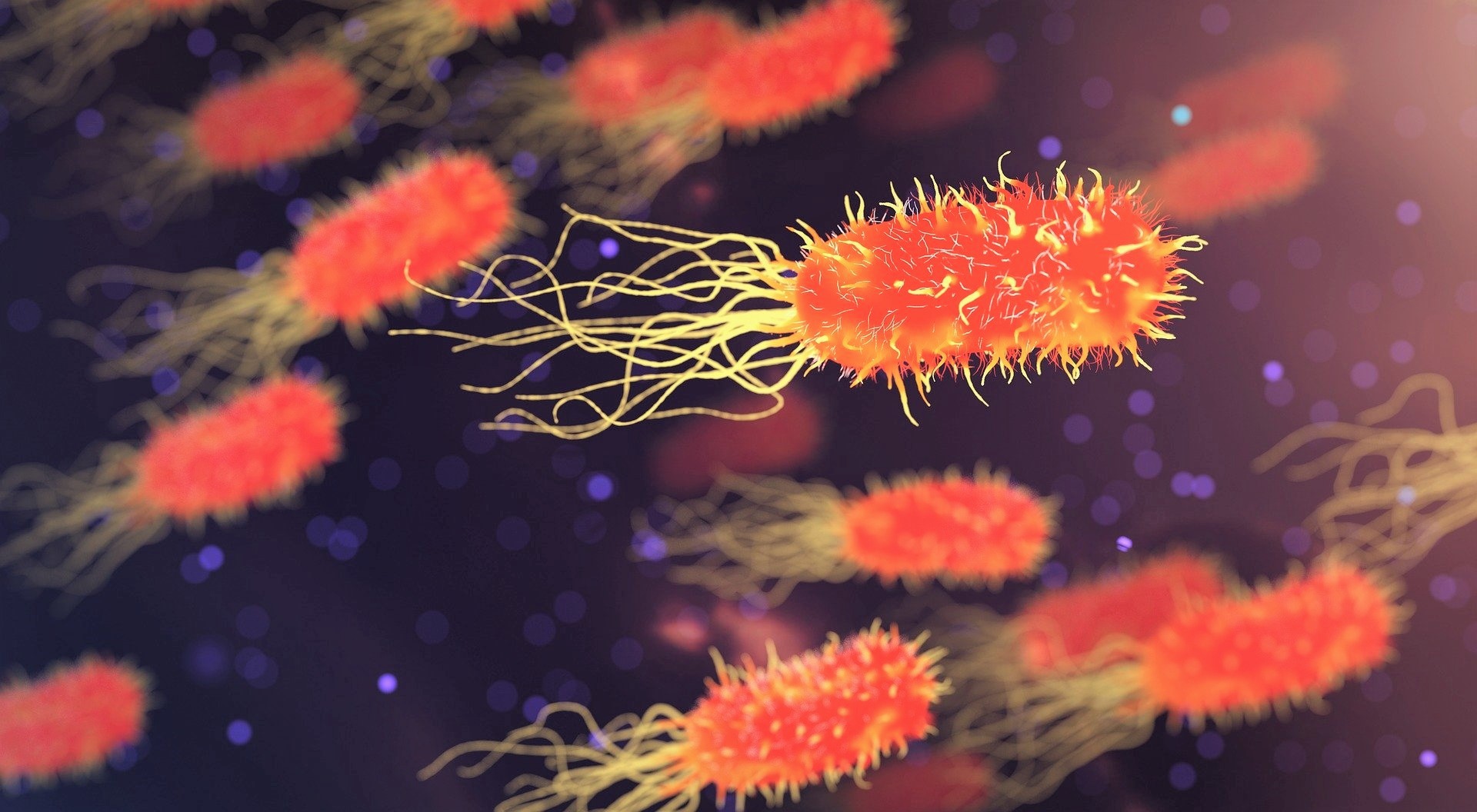As a hormone gland, the thyroid has an important control function in the human body. This is because hormones are important messenger substances that can act on other organs and regulate them.
Thyroid hormones have a particular influence on heart activity and blood pressure, energy metabolism, body weight, carbohydrate metabolism and also insulin secretion. They also influence fat and protein metabolism, cholesterol levels, brain activity and psyche, as well as muscle metabolism and strength. Last but not least, intestinal activity and digestion as well as growth and maturation of unborn children in the womb and of children also depend on thyroid hormones.
Hyperthyroidism/hyperthyroidism
Hyperthyroidism is characterized by an excessive increase in both hormone production and hormone secretion in the thyroid gland. This condition is not without consequences, because the thyroid hormones T3 (triiodothyronine) and T4 (thyroxine) are involved in the control of numerous vital metabolic processes. These include the processes of growth and development, energy metabolism, heartbeat and blood pressure.
Causes of hyperthyroidism
The most common causes of hyperthyroidism include Graves' disease and so-called thyroid autonomy. In rarer cases, the excessive level of thyroid hormones is due to other causes.
Graves' disease

Normally, pathogens such as bacteria and viruses are carried by the Immunesystem fights. In Graves' disease, the body's own defense cells mistakenly form defense substances (antibodies) that bind to thyroid cells. This causes the gland to produce more thyroid hormones and consequently to work harder than it should.
Graves' disease is the most common cause of hyperthyroidism worldwide.
Thyroid Autonomy
Thyroid autonomy refers to the uncontrolled production of thyroid hormones - independent of the thyrotropic control loop - meaning that the thyroid tissue escapes control by higher-level brain centers.
There are three different forms:
Unifocal: The independent tissue is limited to a benign "nodule" in the thyroid gland.
Multifocal: There are several benign "nodules" in the thyroid gland that produce hormones that are not regulated by the brain.
Disseminated: Autonomous tissue is found throughout the thyroid gland, which produces hormones in an uncontrolled manner.
Other possible causes
Hyperthyroidism only rarely has causes other than Graves' disease or thyroid autonomy. These could be:
- An inflammation of the thyroid gland (thyroiditis)
- Excessive iodine intake, caused for example by iodine-containing drugs
- A benign tumor of the pituitary gland (pituitary adenoma) that produces excessive amounts of TSH, causing excessive stimulation of hormone production in the thyroid gland.
- Thyroid Cancer
- Overdose of thyroid hormones, e.g., to treat hypothyroidism.
Symptoms
Hormone overproduction leads to an intensification of metabolic processes in a large number of organs and organ systems. The symptoms of hyperthyroidism are correspondingly diverse. Possible complaints include:
- Palpitations and palpitations, sometimes also cardiac arrhythmia
- Hypertension
- Restlessness, irritability, nervousness
- Mood swings
- Hypersensitivity to heat/heat
- Frequent sweating and damp skin
- Insomnia
- Unwanted weight loss
- Weakness and fatigue
- Diarrhea
- Power drop
- Hair loss
Diagnostics

If hyperthyroidism is suspected, the thyroid gland is palpated after a detailed anamnesis. This allows not only size to be checked, but also possible nodes to be felt.
However, the most important part of diagnostics is blood sampling. This allows the hormone levels in the blood to be determined, which makes the thyroid function clear.
In addition to a blood test, ultrasound is also performed. Through this examination, the location, size, shape and structure of the thyroid gland can be determined. It is also possible that a scintigraphy is performed.
Treatment of hyperthyroidism

There are basically three options for the treatment of hyperthyroidism: Medication, radioiodine therapy, surgery.
The choice of the most appropriate therapy depends on various factors. These include the severity of the disease, the size and structure of the thyroid gland, age and general health. Finally, the cause of the hyperthyroidism is a major contributing factor.
In most cases, hyperthyroidism is initially treated with tablets, which may need to be adjusted over time.






